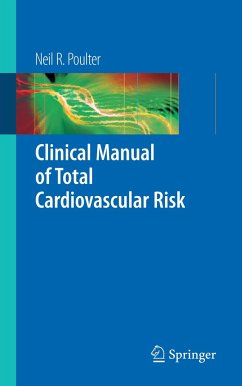Over the last 10-20 years, there has been an increasing appreciation of the need to manage individual risk factors for cardiovascular disease (CVD) in the context of overall cv risk rather than on the basis of the absolute level of any given risk factor. This approach has given rise to the misnomer "global risk" and gen- ated extensive "lip-service" around this more broad-minded approach to managing risk factors and the prevention of CVD. This short book was devised with the idea of providing a practical summary of the rationale for management based on estimated total CV risk and the various methods associated with so-doing. Practical issues are addressed including treatment thresholds and targets for the major risk factors on which we routinely intervene, and a brief descr- tion of the major means of these interventions is provided. Whilst a multifactorial approach to CV prevention is logical and reflects the pathophysiological processes which underpin the formation of athe- sclerosis, the evidence base to guide practice using estimated CV risk ("global risk") as a threshold for intervention is essentially non-existent. Meanwhile, pending supportive evidence from randomized trials, prac- cal, pragmatic, and cost-effective approaches to preventing CVD, which is the current biggest contributor to global mortality and burden of disease, is urgently required. The hope is that this book may make a small contribution toward reducing the horrendous burden which CVD currently imposes on the world.
From the reviews:
"This ... book is a to-the-point summary of everything one must understand about cardiovascular risk. ... This is an extraordinary book that primary care practitioners can easily use to modify the cardiovascular risks of their patients ... . The references are complete and current. This small book is a must for every practitioner who treats cardiovascular disease patients." (Vincent F Carr, Doody's Review Service, March, 2009)
"This ... book is a to-the-point summary of everything one must understand about cardiovascular risk. ... This is an extraordinary book that primary care practitioners can easily use to modify the cardiovascular risks of their patients ... . The references are complete and current. This small book is a must for every practitioner who treats cardiovascular disease patients." (Vincent F Carr, Doody's Review Service, March, 2009)








